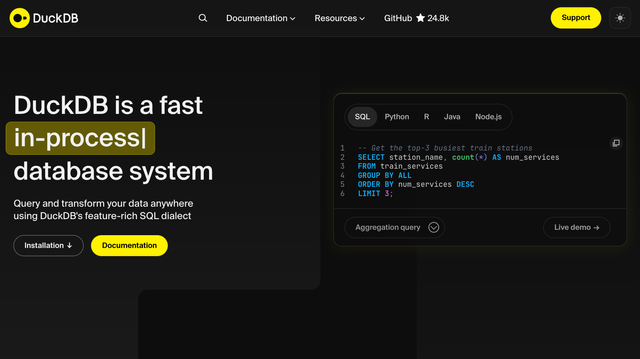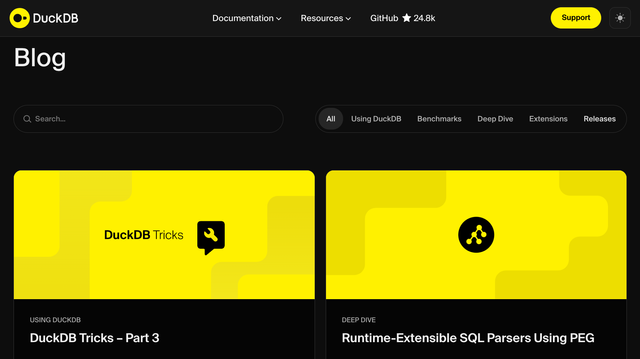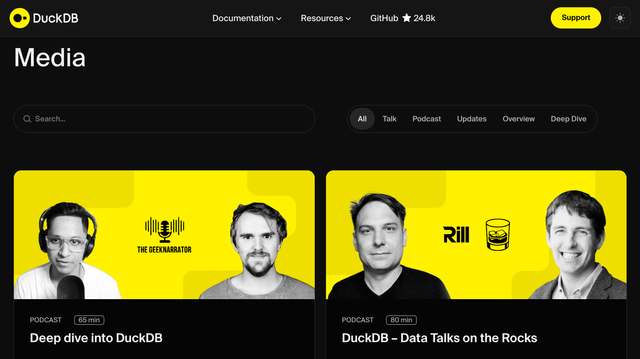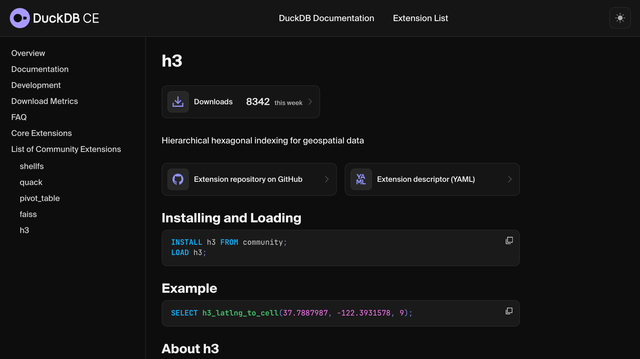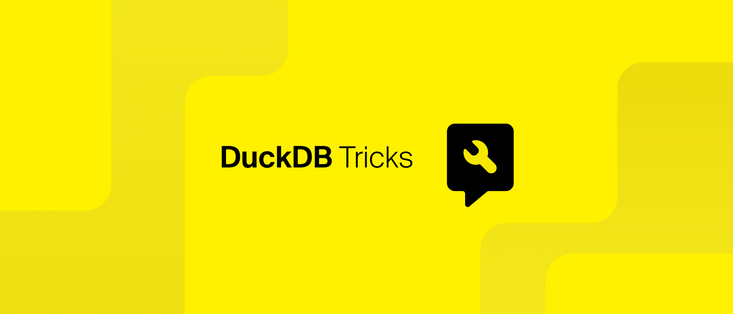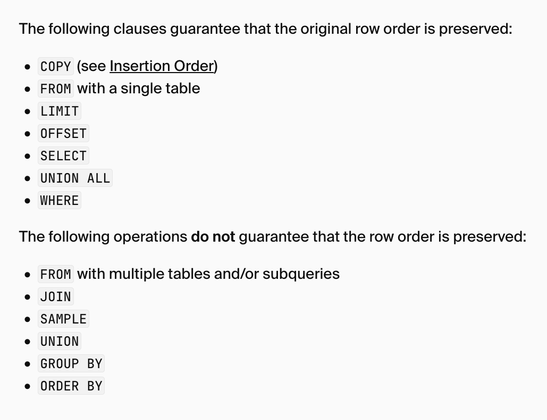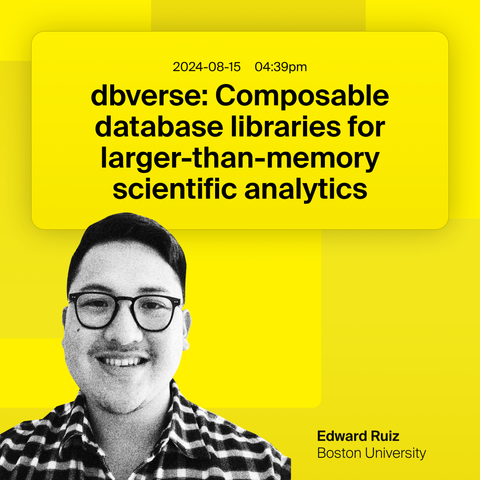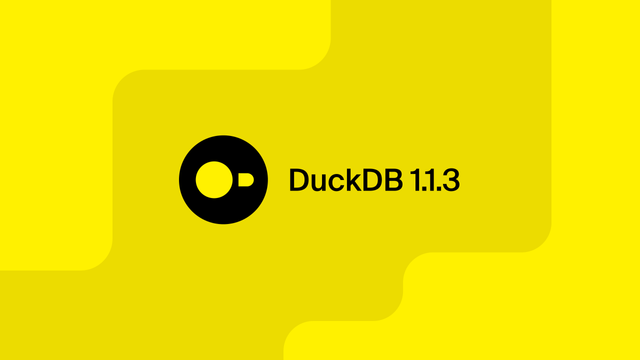| GitHub | https://github.com/duckdb/duckdb |
| Website | https://duckdb.org/ |
DuckDB
- 576 Followers
- 20 Following
- 127 Posts
📣 New post in the DuckDB tricks series
These tips can save you precious keystrokes and file scans, making both writing and running your queries faster.
https://duckdb.org/docs/sql/dialect/order_preservation
Order Preservation
For many operations, DuckDB preserves the order of rows, similarly to data frame libraries such as Pandas. Example Take the following table for example: CREATE TABLE tbl AS SELECT * FROM (VALUES (1, 'a'), (2, 'b'), (3, 'c')) t(x, y); SELECT * FROM tbl; x y 1 a 2 b 3 c Let's take the following query that returns the rows where x is an odd number: SELECT * FROM tbl WHERE x % 2 == 1; x y 1 a 3 c Because the row (1, 'a') occurs before (3, 'c') in the original table, it is guaranteed to…
New blog post by Hannes Mühleisen and Mark Raasveldt:
Runtime-Extensible SQL Parsers Using PEG
https://duckdb.org/2024/11/22/runtime-extensible-parsers
This post, a shortened version of a CIDR 2025 paper, discusses how parsers in DBMSs could be re-designed using Parser Expression Grammars for extensibility and improved error reporting.
Runtime-Extensible SQL Parsers Using PEG
Despite their central role in processing queries, parsers have not received any noticeable attention in the data systems space. State-of-the art systems are content with ancient old parser generators. These generators create monolithic, inflexible and unforgiving parsers that hinder innovation in query languages and frustrate users. Instead, parsers should be rewritten using modern abstractions like Parser Expression Grammars (PEG), which allow dynamic changes to the accepted query syntax and better error recovery. In this post, we discuss how parsers could be re-designed using PEG, and validate our recommendations using experiments for both effectiveness and efficiency.
We finalized the schedule for the sixth edition of DuckCon!
We want to emphasize that DuckCon is a 𝐟𝐫𝐞𝐞 event, and registration is required to attend in person. If you can't join us in person, the event will be streamed through a public stream (no registration required to watch).
Check out all the details about #DuckCon on our website: https://lnkd.in/dCE2_k5m
If you're curious about DuckCon, here is a talk from our previous edition, which took place in Seattle: https://www.youtube.com/watch?v=pY3fDhZiPDk
Find more info about the upcoming as well as previous DuckCon events on our website: https://duckdb.org/2025/01/31/duckcon6.html
dbverse: Composable database libraries for larger-than-memory scientific analytics (DuckCon #5)
𝗡𝗲𝘄 𝗿𝗲𝗹𝗲𝗮𝘀𝗲
We released DuckDB version 1.1.3, which is a bug fix release. You can find the change log here: https://github.com/duckdb/duckdb/releases/tag/v1.1.3
Follow our documentation for instructions on installing or upgrading: https://duckdb.org/docs/installation
Data Wrangling [for Python or R] Like a Boss With DuckDB - posit conf 2024
𝗖𝗼𝗻𝗰𝘂𝗿𝗿𝗲𝗻𝗰𝘆 𝗰𝗼𝗻𝘁𝗿𝗼𝗹 𝗮𝗻𝗱 𝗹𝗼𝗴𝗴𝗶𝗻𝗴 𝗶𝗻 𝗗𝘂𝗰𝗸𝗗𝗕
Have you ever wondered what the .wal file is when working with DuckDB? Time to find out!
This week, the co-creators of DuckDB, Hannes Mühleisen and Mark Raasveldt, wrote a blog post about the Multi-Version Concurrency Control and Write-Ahead-Logging schemes designed to ensure transactional guarantees: https://duckdb.org/2024/10/30/analytics-optimized-concurrent-transactions
